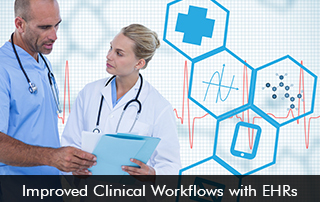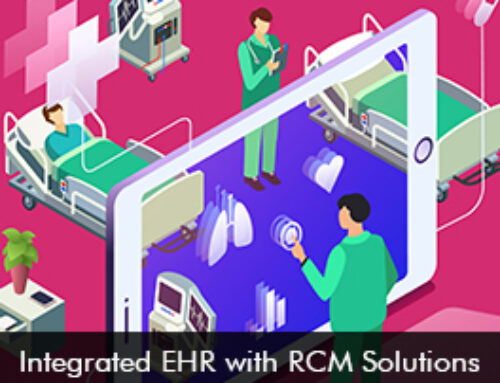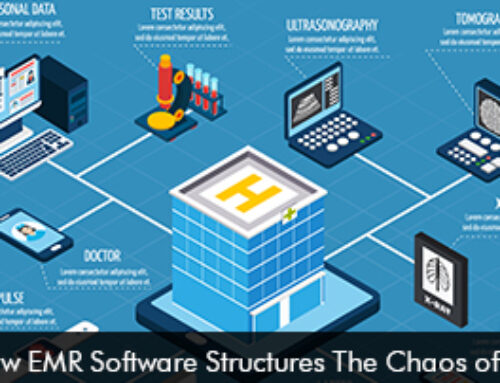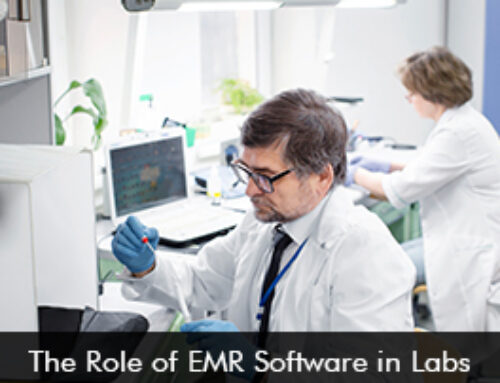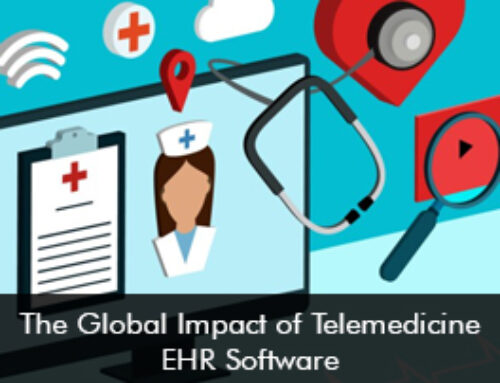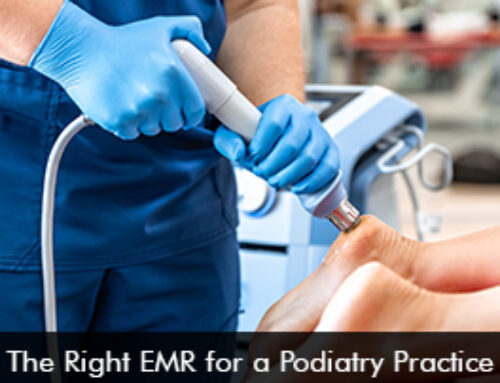Technological advancements such as health IT solutions and Electronic Medical Records (EMR) Software have not only helped hospitals and health systems to digitize patient data but have enabled them to streamline clinical workflows. Efficient clinical workflows are the goal of health systems as they contribute positively by boosting health outcomes and enhancing operational efficiency. This fosters a conducive environment for delivering high-quality patient care.
EMR Software Features that Optimize Workflows
With the following EHR Software system features healthcare organizations can optimize their workflows, which can reduce waste, boost productivity, and keep patients satisfied with consistent care.
- Customizable Templates – Enables healthcare providers to efficiently document patient encounters.
- Interoperability – Interoperability options in the EMR Software provide an environment where patient data can be shared seamlessly across different systems, and hospitals. Interoperability makes way for care coordination which is essential to offer exceptional care.
- CDS Tools – Clinical decision support tools are provided by electronic health records software. These tools include evidence-based guidelines, allergy warnings, medication interaction alerts, and preventative care reminders. By supporting healthcare providers in making knowledgeable decisions at the point of treatment, CDS tools enhance patient outcomes and safety.
- Order Sets and Protocols – Order sets and protocols can be created and used with EMR systems.
- Integration – Integration with diagnostic tools such as laboratory systems and imaging devices provides direct and quick access to results in the EHR Software. This helps to streamline clinical processes as physicians don’t have to switch between systems to view results.
- Workflow Automation – Routine operations such as appointment reminders, prescription refills, and administrative processes can be automated by Electronic Medical Records Software. This minimizes manual efforts and allows personnel to focus on more vital parts of patient care.
How can EMR Software Systems Improve Clinical Workflows?
EHR Software can dramatically improve clinical workflows in healthcare environments in various ways:
Centralized Patient Data
EMR software organizes patient records such as medical history, diagnoses, prescriptions, test results, and treatment plans. This ease of access enables healthcare providers to swiftly access and examine patient information, resulting in more informed decisions and better patient care.
Simplified Clinical Documentation and Charting
EHR systems lower paperwork and the possibility of errors associated with manual record-keeping by enabling healthcare providers to electronically enter patient data, comments, and orders. EMR templates and standard forms help further optimize documentation procedures, resulting in time savings and uniformity. Many software vendors such as athenahealth EMR Software and eClinicalWorks Software offer voice integration features to make documentation a breeze.
Efficient Appointment Scheduling
The integrated patient scheduling features in the Electronic Health Records system can help with effective appointment management. Clinic schedules can be optimized and patient wait times can be reduced which can boost operational productivity and even improve patient satisfaction scores.
Analytics and Reports
Report generation and analytics tools in the EMR Software can benefit healthcare providers by helping them identify trends and track outcomes. This empowers clinicians to make informed care decisions which can ultimately improve health outcomes.


